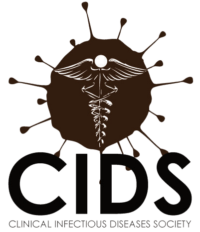Abstract
March 28, 2024 2025-05-12 12:23Abstract
Abstract
CIDSCON Abstract Submission Guidelines
- Submission: Abstracts may be submitted online only.
- Language: All abstracts must be submitted in English (Arial font 11)
- Abstracts must contain original material neither published nor presented elsewhere.
- Word limit: The abstract must be within 300 words(including 1 table if necessary). Uploading file should have only the Title and Asbtarct, Names of the authors and the institution should not be given in the abstract.
- Title: Please use a short and concise title that indicates the content of the abstract. Capitalize the first letter of each word except prepositions, articles and species names.
- Please structure your abstract using the following headings:
- Background
- Methods
- Results
- Conclusion
- Pictures/Graphs: Authors can include a maximum of 1 picture/graph. The file size of each picture/graph should not exceed 500 KB. The maximum pixel size of the graph/picture is 600(w) x 800(h) pixels.
- AI Assistance: Mention if AI or other applications were used in your study; or to prepare your final PowerPoint or enhance the image quality”
- Abstract deadline : All abstracts must be received by 31st May 2025
Abstracts will be subjected to a peer review by two independent experts. Authors will be notified of acceptance by 15th June 2025 by email.
- Presenting authors must register for the conference by 30th June 2025
- If an abstract is accepted, the presenting author must attend the congress and present it in person.
e-Poster specifications: If the abstract is accepted, the poster should be in the e-Poster (e-Poster should be Width 42 X Height 59.5 cms (Conference poster) in size)
- . The accepted abstracts will be published in JCIDS in the exact submitted form, please verify all the details prior to submission.
Abstract Submission Categories
A.Clinical Infectious Diseases (Clinical studies including epidemiology)
- Bacteremia, sepsis and endocarditis
- Respiratory infections
- Enteric infections
- CNS infections
- Bone and joint, skin and soft tissue infections
- Urinary tract and sexually transmitted infections
- Tuberculosis
- HIV infection
- Hepatitis
- Viral infections other than HIV and hepatitis
- Bacterial infections including drug resistant infections
- Healthcare associated infections
- Tropical infections and parasitic diseases
- Emerging and re-emerging infections
- Fungal infections
- Transplant and immunocompromised host infections
- Infection control and antimicrobial stewardship
- Vaccines and immunization
- COVID19 infection
- Travel Medicine
B.Infectious Disease Diagnostics, Pharmacological Studies, Basic Science and Translational Studies
- Bacteriology/mycobacteriology
- Virology
- Parasitology
- Mycology
- Typing/sequencing
- Others (Eg. Biomarkers, pathogenesis, immune response etc)

